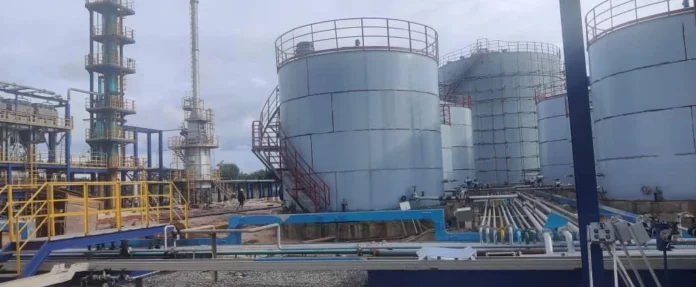The Petroleum Products Retail Outlets Owners Association of Nigeria (PETROAN), in collaboration with strategic partners, is gearing up to construct a modular refinery with a 50,000-barrel-per-day (bpd) capacity. This ambitious project aims to bolster the nation’s energy sector, leveraging the opportunities created by the deregulation of the downstream oil and gas industry.
Speaking with reporters, PETROAN President Billy Gillis-Harry confirmed that a Memorandum of Understanding (MoU) to kickstart the refinery’s construction is set to be signed in the coming weeks. “The deregulation of the downstream segment is paving the way for fresh investments,” he said.
A Step Toward Energy Independence
The modular refinery, once operational, is expected to address some of Nigeria’s perennial energy challenges, particularly regarding fuel availability and pricing. Gillis-Harry emphasized that PETROAN has consistently advocated for deregulation as a means to redirect funds previously allocated to fuel subsidies into critical sectors like healthcare, transportation, and education.
“Subsidy payments for Premium Motor Spirit (PMS) are unsustainable. What is sustainable is freeing the market to attract investments and ensure a steady product supply,” he remarked.
The project aligns with PETROAN’s commitment to making energy more affordable and accessible across the nation. Gillis-Harry highlighted the association’s role in ensuring sufficient energy supply, describing the refinery as a crucial step in achieving this goal.
Fuel Subsidies: A Controversial Legacy
Nigeria has long grappled with the economic burden of fuel subsidies, which have cost the government billions annually. Proponents of deregulation argue that removing subsidies will attract private-sector investment, foster competition, and ultimately stabilize fuel prices. Critics, however, fear that deregulation could lead to price hikes that disproportionately affect ordinary Nigerians.
Gillis-Harry is firmly in the pro-deregulation camp, arguing that subsidy funds should instead be used to develop infrastructure. “Channeling subsidy money to enhance rail transportation, for example, would enable marketers to move products sustainably and at lower costs,” he said.
The Call for a Nigeria Energy Bank
One of PETROAN’s key proposals to the government is the establishment of a Nigeria Energy Bank (NEB). Gillis-Harry envisions the NEB as a local subsidiary of the African Energy Bank (AEB), providing affordable financing to petroleum marketers.
“Currently, borrowing funds from commercial banks comes with interest rates as high as 28 to 35 percent. This cost is factored into the price of petroleum products, making them less affordable for consumers,” he explained.
By offering single-digit interest rates, the NEB could enable marketers to procure products more sustainably, ensuring a consistent fuel supply throughout the year.
Boosting Nigeria’s Energy Infrastructure
Beyond the refinery project, PETROAN is advocating for broader reforms in the energy sector. The association believes that investments in transportation infrastructure, particularly rail systems, would significantly reduce the cost of moving petroleum products across the country.
“The government should prioritize rail development to ensure products can be transported to depots at minimal cost,” Gillis-Harry advised. This, he argued, would create a more efficient distribution network and alleviate pressure on road transport systems.
Economic Implications of Deregulation
The deregulation of Nigeria’s downstream sector has been a double-edged sword. While it has encouraged private investment, it has also exposed the industry to market volatility. PETROAN’s refinery project is seen as a critical move to mitigate these risks by increasing domestic refining capacity.
Experts note that Nigeria’s over-reliance on imported petroleum products has left it vulnerable to international price fluctuations. Despite being Africa’s largest oil producer, the country imports the bulk of its refined petroleum due to inadequate local refining capacity.
The PETROAN refinery, with its modular design, is expected to be more cost-effective and quicker to build than traditional refineries. This approach has gained traction globally as a solution to refining challenges in developing countries.
Looking Ahead
As the Nigerian government continues to push for reforms in the energy sector, projects like PETROAN’s refinery could play a pivotal role in reshaping the industry. The success of this venture will depend on effective collaboration between stakeholders and the government’s ability to create an enabling environment for investment.
Gillis-Harry remains optimistic, viewing the refinery as a symbol of progress in Nigeria’s journey toward energy independence. “We are committed to ensuring affordable and available energy for all Nigerians,” he said.

